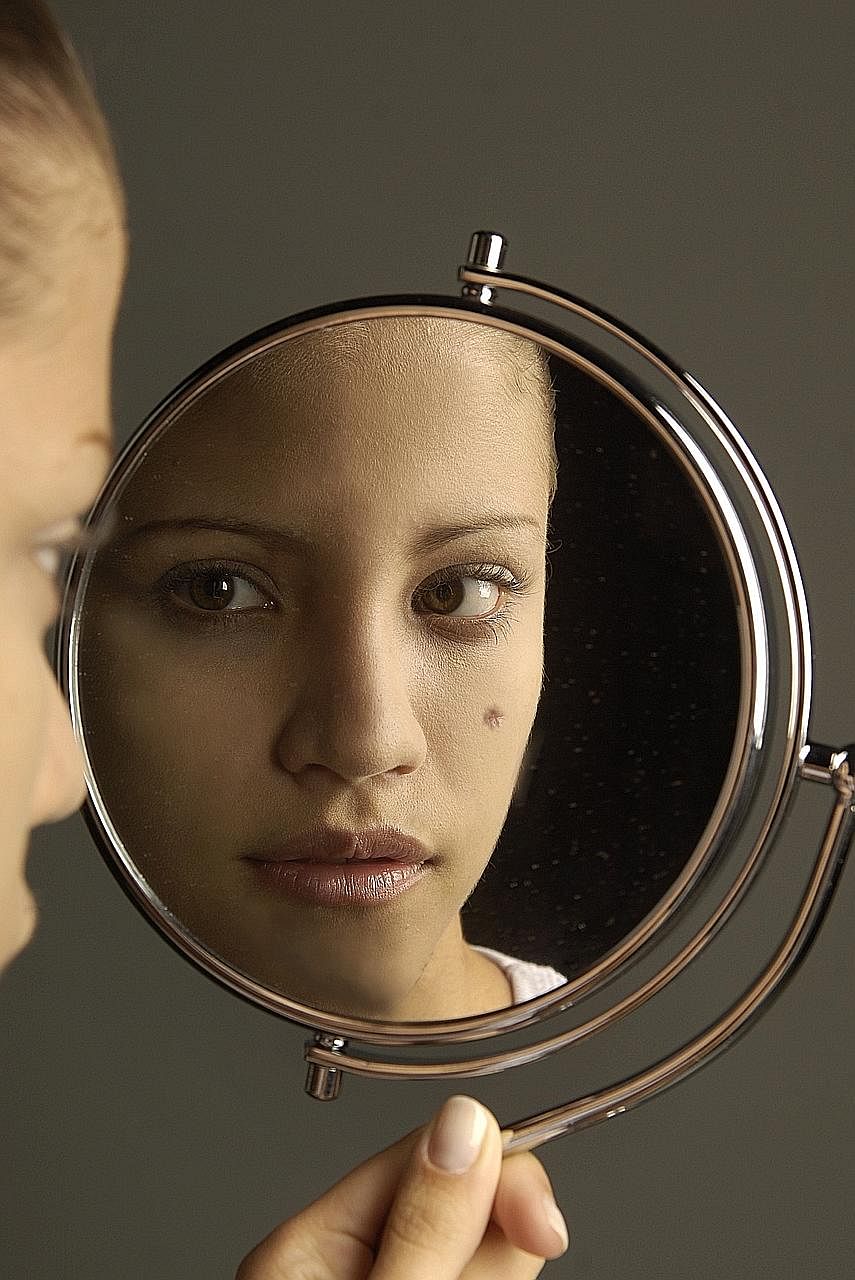NEW YORK • Acne appeared sporadically at first when Sophia Steinberg was in eighth grade, but, in two years, her face, chest and back were covered with lesions of cystic acne.
"I was very self-conscious, deeply insecure and anxious," the Brooklyn high school student said.
"I would wake up ashamed for my face. I had to use so much make-up and wear concealing clothing.
"I avoided doing presentations in front of the class."
The teenage years are challenging for many youngsters, even under the best of circumstances. But if the face they present to the world is marred by acne, the ordinary emotional and social stresses of adolescence can be that much more difficult to weather.
As Dr Andrea Zaenglein, professor of dermatology and paediatrics at Pennsylvania State University, reported in The New England Journal Of Medicine, "the psychological effects of acne can be profound and sufferers are at risk for substantial, negative effects on quality of life".
"Acne affects how teenagers feel about themselves. Acne is very visible - the face is the first thing people see. Yet, kids don't always tell their parents how much acne is impacting them."
Dr Robert Dellavalle, professor of dermatology at the University of Colorado in Denver, said: "It's not a killer, but it can scar people literally and psychologically."
Complicating matters are many misunderstandings about what causes acne and a general lack of knowledge about how well modern treatments can control it.
As many as 85 per cent of teens are affected to some degree.

Though most cases are mild and respond to simple over-the-counter remedies, others are more severe, long-lasting and in need of professional care.
Too often, that care is delayed, resulting in persistent emotional and social distress and permanent scarring that may warrant cosmetic surgery.
Proper care is often delayed when people assume that things will soon get better. But Prof Zaenglein said: "Acne can take many years to run its course. And women can be plagued by it well into adulthood."
For still unknown reasons, dermatologists are seeing an increase in persistent acne in adult women, said Prof Dellavalle.
Contrary to common belief, acne does not result from surface dirt or infrequent skin cleansing.
In fact, irritation of the skin from too frequent washing can promote acne. Prof Dellavalle recommends gentle skincare with a product such as Cetaphil rather than soap.
Washing should be limited to twice a day, Prof Zaenglein added.
The influence of diet is largely theoretical and hard to test.
Global studies suggest that a high-glycaemic diet - one rich in refined carbohydrates and sugars - can promote acne. A low-glycaemic diet rich in whole grains and legumes seems to improve acne in teens and "is good medical advice for everyone", Prof Dellavalle said.
Dairy products may aggravate acne in some people, so teens who are big milk drinkers might want to try cutting back to see if their acne improves.
Likewise, heavy consumers of meat and poultry, rich in the amino acid leucine, may be more likely to develop acne through a complex chain reaction that stimulates the skin's oil glands.
But the influence on acne of other dietary items such as chocolate and fried foods is more myth than fact.
Dr Steven Feldman, professor of dermatology at the Wake Forest School of Medicine in North Carolina, said that "within reason, diet doesn't have a big effect on acne".
He suspects that most mistaken beliefs about diet stem from the fact that "when adolescent hormones kick in, teens get very hungry and coincidentally also get acne".
More important than restricting diet is getting the right treatment.
Most mild cases respond well to over-the-counter remedies such as benzoyl peroxide, which kills acne-fostering bacteria.
If acne is extensive or severe, Prof Zaenglein suggests it is better to treat it professionally right away to prevent scarring.
One of the most challenging aspects of acne treatment in adolescence is lack of compliance - getting teens to adhere consistently to an established regimen.
The simpler the routine, the better, Prof Zaenglein added. She recommends keeping acne medicine next to one's toothbrush to enhance its use.
Most important, she said, is to "be patient - it can take six to eight weeks of consistent treatment to see an improvement".
NYTIMES
